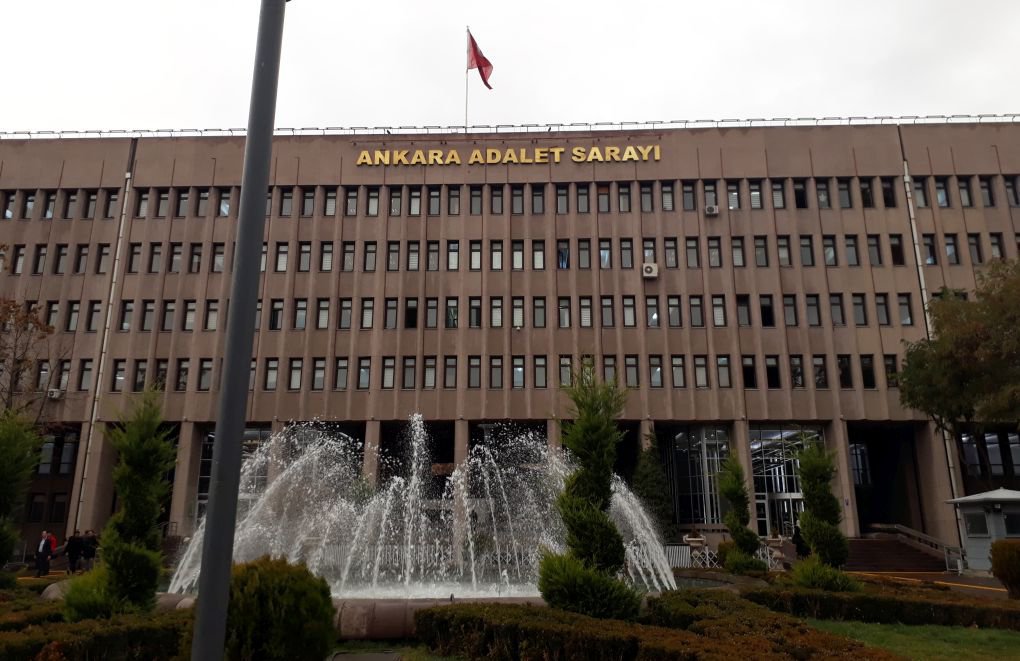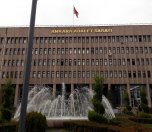Click to read the article in Turkish
The detailed ruling of the Ankara JİTEM* case filed into enforced disappearance or illegal arbitrary execution of 19 people in the 1990s was announced today (January 20).
In the final hearing of 19 defendants held at the Ankara 1st Heavy Penal Court on December 13, all defendants were acquitted.
In the detailed ruling of the court, it has been indicated that "the Grand National Assembly of Turkey (TBMM), Ministry, [Susurluk] Commission and National Intelligence Organization (MİT) reports consist solely of hearsay information and guesses and, therefore, they have not been deemed sufficient for the conviction of defendants."
While the ruling has also stated that the statements of witness Ayhan Çarkın have not been found credible, it has been indicated that Poyraz, one of the anonymous witnesses of the case, "could not be reached by court."
* What is JİTEM?"Gendarmerie Intelligence and Counter-Terrorism" or "Gendarmerie Intelligence Organization" (JİTEM) is the controversial wing and intelligence agency of the Turkish Gendarmerie. It is claimed that JİTEM was active in the Kurdish–Turkish conflict. After the Susurluk scandal, former prime ministers Bülent Ecevit and Mesut Yılmaz have confirmed the existence of JİTEM. According to Murat Belge of Istanbul Bilgi University, who has reported that he was tortured in 1971 by its founder, Veli Küçük JİTEM is an embodiment of the deep state. In other words, it is used by "the Establishment" to enforce alleged national interests. Source: Wikipedia |
'Not the same guns with Susurluk'
In the final hearing of the case known as Ankara JİTEM or Ankara unidentified murders case, the Ankara 1st Heavy Penal Court ruled that the file of Yeşil code-named Mahmut Yıldırım should be separated as he was still considered "fugitive". All defendants of the case, including Minister of Interior of the time Mehmet Ağar, have been acquitted.
In the detailed ruling of the court, it has been indicated that the same guns were used in the murders of Medet Serhat and İsmail Karaalioğlu in Kadıköy on November 12, 1994 and Yusuf Ekinci in Ankara on February 25, 1994.
The court has stated that the guns used in the murder of Metin Vural in Kırıkkale "do not have anything to do with the ones in Susurluk"; but, though the weapons were not the same, their brands were the same.
The detailed ruling has also indicated that Tarık Ümit, one of the killed people, was working for the National Intelligence Organization (MİT) and carrying an Uzi brand weapon.
'It is obvious that the same Uzi guns were used'
In his statement in the final hearing, Mehmet Emin Aktar, one of the intervening attorneys of the case, said, "We knew that the trial that continued without defendants would not result in justice. It is obvious that the gun used in two different murders, one in Ankara and the other in İstanbul, was the same 'uzi' gun, there are ballistics, there is evidence... No matter what verdict you will give, the defendants are convicted in our conscience."
Similarly, the detailed ruling has revealed that according to criminal reports, the gun used in the murders of Behçet Cantürk and Recep Baskın in Sakarya in January 1994 and the gun used in the murders of Fevzi and Salih Aslan in Düzce on March 28, 1994 were the same.
In the conclusion part of the detailed ruling, it has been indicated that the same guns were used in four different murders; however, it has been added that "the guns used in the incidents were not captured."
'He denied it, so he didn't have anything to do with it'
In the detailed ruling, which also includes evidence as to the killing of Medet Serhat, it has been stated, "In the documents seized from witness Hikmet Çiçek, it is written that Medet Serhat deserved a severe punishment and that Ayhan Akça, Ziya Bandırmalıoğlu and Semih formed a team with Tarık Ümit and received the orders from Tarık."
However, the court has concluded that this document obviously does not have evidential value. Similarly, it is stated that "based on his own statement, Ayhan Çarkın has been understood to have nothing to do with the incident."
'There was 68 percent alcohol in his blood'
The detailed ruling has also indicated that according to the postmortem report, there was 68 percent alcohol in his blood when Ömer Lütfi Topal was murdered. However, the ruling has not explained the relation of this information to the content of the file.
The court has explained why the statements of witness Ayhan Çarkın have not been heeded in following words:
"There is no evidence suggesting that defendants Mehmet Ağar, İbrahim Şahin and Korkut Eken were instigators in the murder of Ömer Lütfi Topal. The statements of Ayhan Çarkın are at the level of personal guesses."
What happened?
On December 20, 2013, a bill of indictment was prepared on the perpetrators who caused the death of businesspeople and writers in the 1990s.
According to the indictment, the defendants were accused of murdering Abdülmecit Baskın, Namık Erdoğan, Metin Vural, Recep Kuzucu, Behçet Cantürk, Savaş Buldan, Haci Karay, Adnan Yıldırım, İsmail Karaalioğlu, Yusuf Ekinci, Ömer Lutfi Topal, Hikmet Babataş, Medet Serhat, Feyzi Aslan, Lazem Esmaeılı, Asker Smıtko, Tarık Ümit, Salih Aslan and Faik Candan.
Defendants of the case were Mehmet Ağar, İbrahim Şahin, Korkut Eken, Ayhan Çarkın, Ayhan Akça, Ziya Bandırmalıoğlu, Ercan Ersoy, Ahmet Demirel, Ayhan Özkan, Seyfettin Lap, Enver Ulu, Uğur Şahin, Alper Tekdemir, Yusuf Yüksel, Abbas Semih Sueri, Lokman Külünk, Mahmut Yıldırım, Nurettin Güven, Muhsin Korman.
The defendants were put on trial at the Ankara 1st Heavy Penal Court and charged with "killing people as part of the activities of an armed organization established to commit crimes." (AS/SD)











